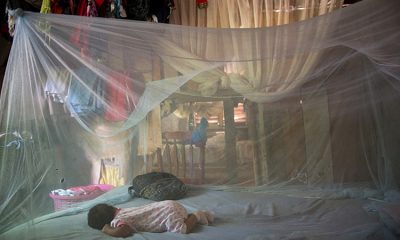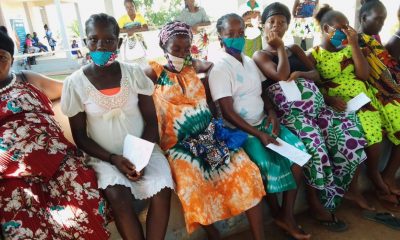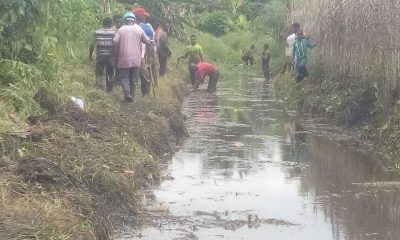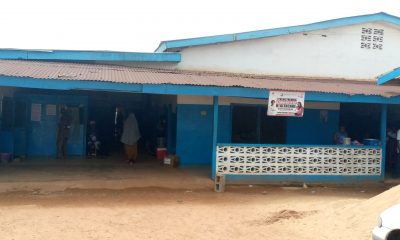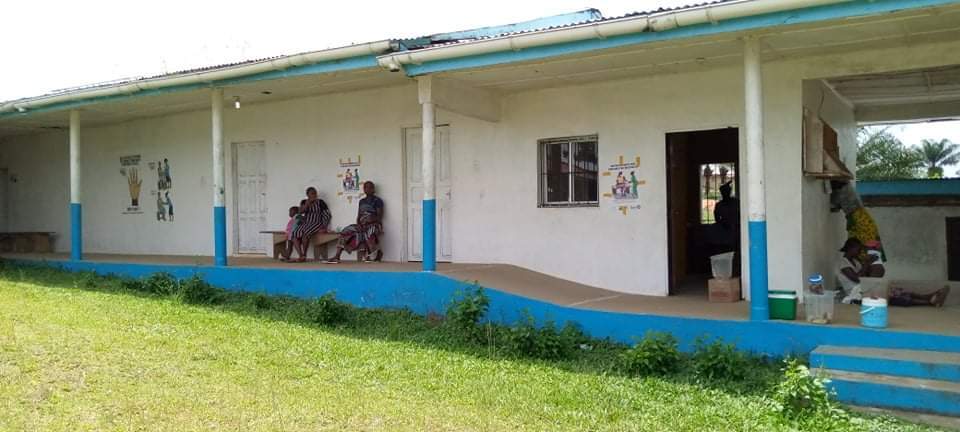
Barclayville – In 2020, Grand Kru County recorded over 6,000 more cases of Malaria than the number of cases recorded in 2019, says Christopher Wolubah, the Malaria Focal Person of the county health team.
Report By: Regina Juwle, LMD Responsible Health Reporting Fellow
Wolubah said in 2019, the total number of Malaria cases recorded was 22,525 while in the year 2020, 28,643 confirmed cases of Malaria were reported at health centers across the country.
“All were tested and proven positive of malaria, that’s the entire population from Community to facility level that’s the over all of confirmed cases the county recorded from the statistics that was an increase of 6118 in 2020,” he explained.
Due to the Malaria prevalent rate in the county, the Ministry of Health’s Malaria Control Program has deemed it necessary to empower the Grand Kru County Health Team “create massive awareness on prevention and treatment to zero level at health centers,” Mr. Wolubah said.
He said this “new management protocol” which include prevention, testing and treatment of Malaria will ensure that health workers are more knowledgeable about the management of malaria cases in the county.
“We carry on several awareness about malaria in the county, train our community health assistance; they went back to their respective districts to educate our people on the malaria prevention and treatment, also creating awareness on the radio,” he said.
“These new guidelines will be given to our health workers to make used of them at their respective facilities in treating malaria Patients”.
Meanwhile, the county malaria focal person has warned that “the constant refusal of community members to adhere to the preventive measures”, Mr. Wolubah said, remains a major challenge for the county’s health sector, thereby resulting to the rapid increase in malaria cases.
“Patients taking the treatment of malaria lightly, once they are tested of malaria and we place them on treatment, they sometimes break in the treatment. We distributed mosquitos’ nets to patients, come to the health center for treatment is very difficult for them, all of these things are contributing to the increase of cases,” he said.

Christopher Wolubah, the Malaria Focal Person of the county health team | Photo By: Regina Juwle
The 2020 Malaria report for the county was announced just in time for the conduct of a one-week intensive Malaria case management workshop held in Barclayville. The training was organized by the County Health Team in partnership with USAID/STAIP.
The training was aimed at building the capacity of health workers mainly clinicians and officers in Charge (OICs) at health facilities across the county to enable them manage malaria cases during pregnancy.
The training workshop brought over 30 health workers from the five health districts of Grand Kru County.
Oliver Tweh, a participant of the training, stressed that health workers are always challenged with the task of keeping patients on Malaria treatment.
“Patients are always staying away for treatment, some of them complain that the medicine provided to make them weak for that reason some of them break in the treatment,” he said.
“We hope that from this training, we will apply more force in educating our people the patients to take prevention”.
And Esther Toe, another health worker attending the workshop, said “those who usually stay away from treatment are our pregnant women”.
“The mosquitoes net given to them, they don’t use these items and it is very dangerous for the unborn child; it causes lot of problems for the unborn baby in the mother stomach, so we are encouraging them to always visit the facilities even other malaria patients.”
Despite funding from international partners Liberia continues to record increased cases of Malaria.
The United States President Malaria Initiative (PMI) — a US funded project providing support to Liberia’s Malaria response since 2008 to reduce the burden of the disease in the country – states in its 2020 report that funding for malaria in Liberia is insufficient if compared with the current international average that is nearly 2.5 times more, according to
Cumulatively from 2017 to 2019, PMI and Global Fund contributed up to $71.3 million for malaria control in Liberia and in 2019-2020, the PMI contributed of $29.2 million to Liberia.
“In absence or with minimum government contribution, this level of funding is insufficient for a country where malaria transmission occurs year round in the whole country,” the PMI stated in its 2020 plan against Malaria in Liberia. “Additionally, the complex financing mechanisms and problematic health supply system with dysfunctional last mile commodity distribution continue to hamper malaria interventions across the country.”
Local Voices Liberia is a network of dedicated Liberian journalists based in the 15 counties working to lift the development concerns and progress of rural communities.


Methodology

True
The claim is rigorous and the content is demonstrably true.

Half True
The statement is correct, although it needs clarification additional information or context.

Unproven
Evidence publicly available neither proves nor disproves the claim. More research is needed.

Misleading
The statement contains correct data, but ignores very important elements or is mixed with incorrect data giving a different, inaccurate or false impression.

False
The claim is inaccurate according to the best evidence publicly available at this time.

Retraction
Upon further investigation of the claim, a different conclusion was determined leading to the removal of the initial determination.

Toxic
A rude, disrespectful, or unreasonable comment that is somewhat likely to make you leave a discussion or give up on sharing your perspective. Based on algorithmic detection of issues around toxicity, obscenity, threats, insults, and hate speech;
